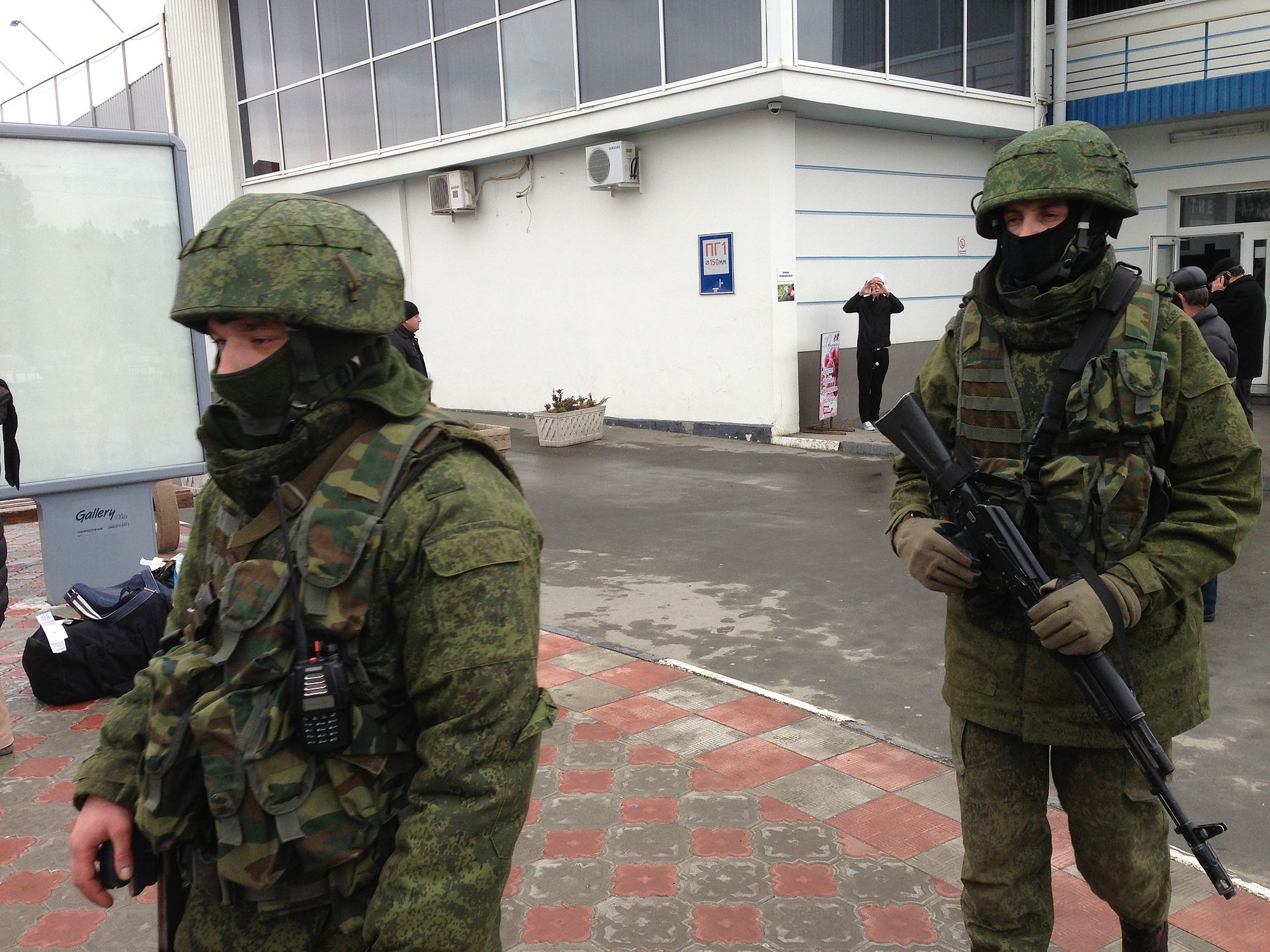To paraphrase an old saying, you may not be interested in the Ukraine crisis but the Ukraine crisis is interested in you. Energy prices are skyrocketing as the world braces for what could be the largest European war since World War II and a diplomatic solution looks increasingly unlikely.
Russian troops have been amassing near Ukraine for months, sparking fears of a full-scale invasion. On Friday, President Biden said that he’s convinced Russian President Vladimir Putin has already made the decision to invade. On Monday, Russia recognized the independence of Donetsk and Luhansk, two breakaway provinces in East Ukraine where Russia sponsored an insurgency, and sent troops into the territories. On Wednesday, Newsweek reported that U.S. intelligence believes an invasion is highly likely within the next 48 hours.
As Russia accounts for 11 percent of the world’s oil production and is Europe’s largest natural gas supplier, not to mention Ukraine’s role as a pipeline transit hub, a conflict could have a major impact on energy markets and the global economy.
“We may see higher energy costs come out of this and we may see some of our supply chains either interrupted, or parts of it becoming more expensive because we’re trying to hit those parts of the Russian economy,” said Rep. Colin Allred on “Inside Texas Politics” over the weekend. “Already, Russian bellicosity has caused a global rise in energy prices and exacerbated inflation,” said Rep. Joaquin Castro in a statement released Wednesday. “If Putin chooses to continue this conflict, Americans could face higher prices on everything from cars to heating oil.” Both Castro and Allred sit on the House Foreign Affairs Committee and Allred recently visited Ukraine as part of a bipartisan delegation.
Indeed, oil is approaching $100 a barrel and the price was already high before the Ukraine crisis due to the pandemic. “The reason why we’re close to $100 a barrel is because there’s not a whole lot of buffer in this market,” said Ben Cahill, a senior fellow in the Energy Security and Climate Change Program at the Center for Strategic and International Studies. “We’ve had a very strong demand recovery from COVID-19, we’ve had a pretty rapid bounce back in the demand for gasoline and diesel and jet fuel in different markets around the world and we also have pretty limited spare capacity.”
The concerns regarding oil and gas largely stem from sanctions that the United States and European Union have threatened to enact should Russia launch an overt invasion, as well as potential retaliation by Moscow in response to said sanctions. While European Commission President Ursula von der Leyen has said that “all options are on the table,” when it comes to sanctions, direct sanctions on Russian oil and gas seems unlikely given the potential consequences. “I think it’s pretty clear at this point that sanctions directly targeting Russian crude, and product exports are not the first option,” said Cahill. “And the reason for that is that the potential price impact is huge.”
Likewise, Russian attempts to weaponize energy in retaliation to sanctions would have negative repercussions for the Russian economy. “I think it’s in Russia’s interest to continue exporting hydrocarbons, for the revenues obviously but also to send the messages clearly that they want to be seen as a reliable exporter,” said Cahill.
However, geopolitical crises are inherently unpredictable and markets hate uncertainty, hence the higher prices we’re seeing now. Oil prices are affecting the United States the most as oil is fungible, meaning disruptions anywhere can affect prices everywhere. Natural gas is harder to transport so price shocks tend to be more localized; any disruptions will mainly impact Europe.
“The Biden Administration and EU officials have for months taken steps to help secure Europe’s energy security in the case Russia were to cut off gas supplies to the continent in retaliation for Western sanctions in response to its invasion of Ukraine,” said Benjamin L. Schmitt, a Postdoctoral Research fellow at Harvard University and Senior Fellow at the Center for European Policy Analysis. “Continuing this process of working with global gas producers and LNG exporters to ensure that Europe can supplement any potential Russian cuts in volumes exported to Europe will be vital to stabilizing not only global energy prices, but national security across the Transatlantic community.”
LNG, or liquefied natural gas, is more expensive than gas delivered via pipeline but it can be shipped across oceans. Texas is one of the suppliers sending large quantities of LNG to Europe in response to the crisis.
A major concern is that many of the pipelines carrying gas from Russia to the rest of Europe go directly through Ukraine. Even if Russia doesn’t intentionally turn off the gas, a war could result in the infrastructure being damaged or destroyed. There was a controversial undersea pipeline in the works called Nord Stream 2 that would carry gas directly from Russia to Germany. However, Germany recently announced that it would not certify Nord Stream 2 while the United States reimposed sanctions against the pipeline.
“Even now, with Nord Stream 2 complete but uncertified, Russia relies on pipeline infrastructure in Ukraine – including pipelines near the Donbas region – to get its own gas volumes to European markets,” said Schmitt. “If it is made clear that Nord Stream 2 could not be used as a diversionary conduit for Russian gas instead of the Ukrainian route, it might make Putin think twice about a broader advance in which the Russian military could destabilize a greater percentage of Ukrainian territory in which pipeline infrastructure the Kremlin still relies on resides.”Of course, if a broader war does occur the greatest harm will not be high energy prices in the United States and European Union but the tremendous suffering inflicted on the people of Ukraine. U.S. officials predict up to 50,000 civilian deaths and 5 million refugees if Russia launches a full-scale invasion.
Photo: Elizabeth Arrott / VOA/ Wikimedia Commons
William serves as the Washington Correspondent for the Texas Signal, where he primarily writes about Congress and other federal issues that affect Texas. A graduate of Colorado College, William has worked on Democratic campaigns in Texas, Colorado, and North Carolina. He is an internet meme expert.





